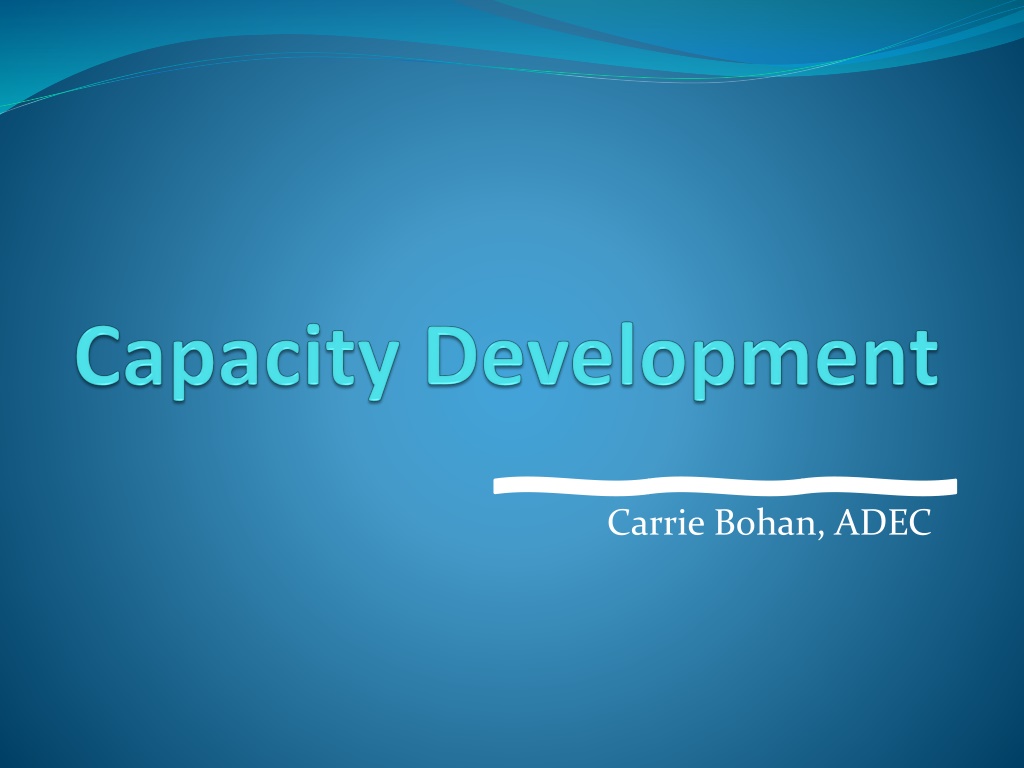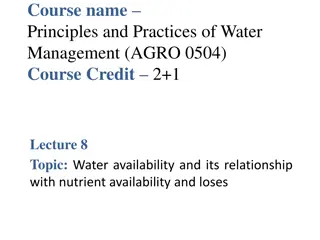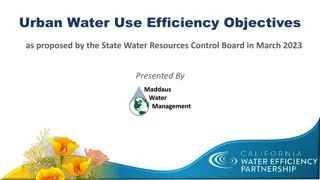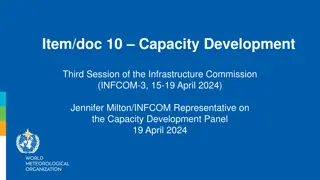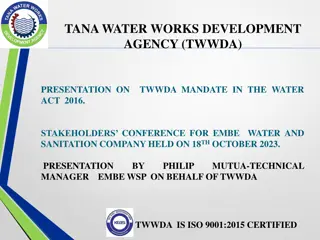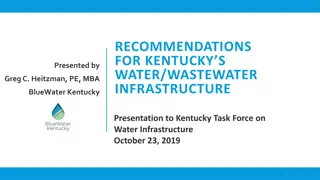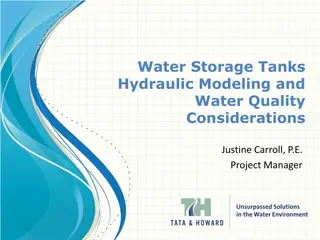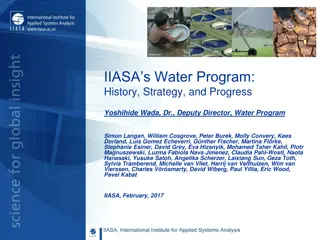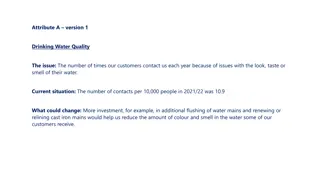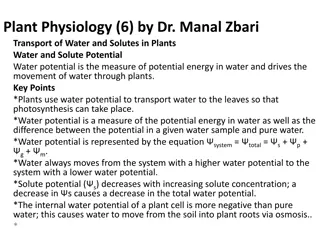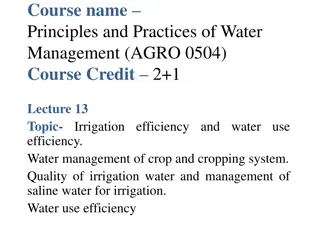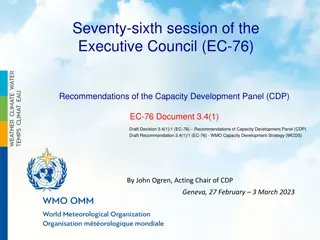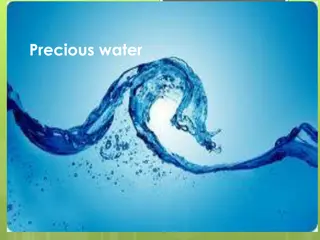Capacity Development in Water Systems
Capacity development is crucial for water systems to acquire and maintain technical, managerial, and financial capabilities in order to consistently provide safe drinking water. Federal requirements mandate new public water systems to demonstrate capacity, with states required to have strategies to assist in capacity development. State implementations include citizen advisory board recommendations, training programs, and transition to technical assistance and financing. Ongoing activities focus on operations, maintenance, best practices, and regional coordination in achieving capacity development goals.
Download Presentation

Please find below an Image/Link to download the presentation.
The content on the website is provided AS IS for your information and personal use only. It may not be sold, licensed, or shared on other websites without obtaining consent from the author.If you encounter any issues during the download, it is possible that the publisher has removed the file from their server.
You are allowed to download the files provided on this website for personal or commercial use, subject to the condition that they are used lawfully. All files are the property of their respective owners.
The content on the website is provided AS IS for your information and personal use only. It may not be sold, licensed, or shared on other websites without obtaining consent from the author.
E N D
Presentation Transcript
The process through which individuals, organizations and societies obtain, strengthen and If capacity is the means to plan and achieve, then capacity development describes the ways to those means. Undp.org leaders, organizations and societies.Undp.org The process through which individuals, groups and organizations, and societies deploy, adapt, strengthen, and maintain the capabilities to define, plan and achieve maintain the capabilities to set and achieve their own development objectives over time. Undp.org The process by which individuals and organizations obtain, improve, and retain the skills, knowledge, tools, equipment, and other resources needed to do their jobs competently. wikipedia their own development objectives on an inclusive, participatory, and sustainable basis. Uneca.org About transformations that empower individuals,
Capacity Development is a process for water systems to acquire and maintain adequate technical, managerial and financial (TMF) capacity. TMF capacity enables water systems to have the capability to consistently provide safe drinking water to the public. Epa.gov
Federal Requirements 1996 Safe Drinking Water Amendments All new public water systems must demonstrate capacity State must have strategy to assist system acquire and maintain TMF capacity Restricts use of State Revolving Fund loans for systems without capacity EPA Approved Capacity Development Strategy
State Implementation 2000 Citizen Advisory Board Recommendations Sanitary Survey inspections, self-assessment tool, financial/managerial training, RCA improvements, training for professionals/consultants, metering, planning, early notice for new rules, third party studies on consolidation, loan guarantee fund, DWSRF eligibility for private utilities, agency cooperation, public outreach about TFM, CapDev program resources and staffing. 2016/2017 Transition from Drinking Water to Technical Assistance & Financing Combined Operator Certification, Capacity Development, Remote Maintenance Worker Program and State Revolving Loan Funds under a single manager Created CapDev Program Coordinator position - Sarah Mutter
State Implementation Current Activities Operations & Maintenance Best Practices Regional Coordination Meetings Training Coalition Training Calendar Contracted development of new training materials Certification Exam Prep New System Reviews Business Plan Reviews
State Implementation 2020 Interim Strategy, Stakeholder Input ~2021 Updated Strategy Implementation Must include asset management considerations Practice of managing infrastructure capital assets to minimize the total cost of owning and operating these assets while delivering the desired service levels. Available Funding Drinking Water State Revolving Fund Set-Asides $1.2-$1.5M annually Supports Capacity Development and Operator Certification Programs **All public water systems**
